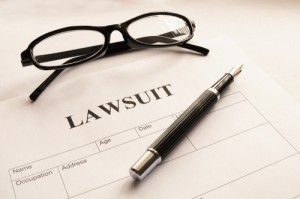World News
US plaintiffs seek to show no fly list violates their due process rights after court win
PORTLAND, Ore. – Thirteen people say their placement on the U.S. no-fly list deprives them of their due process rights, while lawyers defending the federal government say explaining such placement would involve classified information and endanger national security.
In August, U.S. District Court Judge Anna Brown’s rejected the government’s assertion that people on the no-fly list can travel by other means, and that being on the list does not deprive them of their liberty. She asked the government for more information about its redress procedure to help her determine whether it satisfied due process requirements for the plaintiffs.
Lawyers representing the government said in federal court in Portland, Oregon, on Monday that a person’s right to a hearing concerning his no-fly list status is limited, given the national-security issues, and cautioned Brown not to “take over the policymaking” by writing new rules if she decides that the system is unfair.
The no-fly list, a well-protected government secret, decides who is barred from flying at U.S. airports, and is shared with ship captains and 22 other countries. The FBI has said the list requires secrecy to protect sensitive investigations and to avoid giving terrorists clues for avoiding detection.
The plaintiffs argue that being on the list harms their reputations. Several who filed suit said they have been surrounded at airport security areas, detained and interrogated.
The people seeking notice for their placement on the list were represented by lawyers for the American Civil Liberties Union, who argued that the process is inherently unfair to its clients by refusing to tell them what evidence put them on the list and shutting them out of the appeals process.
No-fly list appeals go to a federal appellate court, which makes a decision based only on government input. That system, the ACLU argues, violates people’s rights.
“No one denies that the government has an important national security interest,” said ACLU attorney Hina Shamsi. “The question is whether that interest is so all-encompassing that a citizen can be denied … the fundamental right of due process?”
Shamsi said a better system would allow for people to challenge the unclassified portions of the information used to put them on the list, or to have their attorneys given security clearances to review classified material.
The government has never confirmed nor denied that the plaintiffs are on the list. Government attorney Amy Powell said the plaintiffs don’t know whether they’re on the no-fly list; they were merely denied boarding, which could have been for several reasons that have nothing to do with the no-fly list.
Powell said the constantly changing nature of the list means they may have been on it at one point, but have since been removed.
That seemed to frustrate Brown, who repeatedly broke into Powell’s argument to pose questions about the government’s rationale for keeping people from knowing that they were on the list, even after they had been placed on it.
“If a person is on the list and is denied boarding, whether they’re told after the fact, it’s not reasonable to infer that that is a secret anymore,” Brown said.
Powell replied that the list is “highly dynamic.”
“Now you’re going to say that the person is going to have to continue to purchase tickets every (day),” Brown said.
Would-be travellers banned from a flight can fill out an online form with the Department of Homeland Security. The government examines it and makes a decision on the traveller’s status. Those unhappy with the result can get a judicial review, but not a hearing where evidence would be presented.
The Justice Department said the procedure strikes an appropriate balance by providing a review without requiring the release of classified information.
One of the plaintiffs, Abe Mashal, learned he was on the list when trying to fly from Chicago to Spokane, Wash, according to the lawsuit.
The Marine veteran said his presence on the list has cost him business clients, and stopped him from attending a wedding, a funeral and a graduation.
Another, Stephen Durga Persaud of Irvine, California, was not allowed to board a flight from the U.S. Virgin Islands to Miami. He ended up taking a five-day boat trip and a four-day train ride to get back to Southern California for the birth of his second child. Others were unable to visit relatives in the Middle East.
The lawsuit filed in 2010 moved between district and appellate courts before a decision last summer by the 9th U.S. Circuit Court of Appeals put the lawsuit back under Brown’s jurisdiction.
Brown did not give an estimate for when her decision would be released.






















